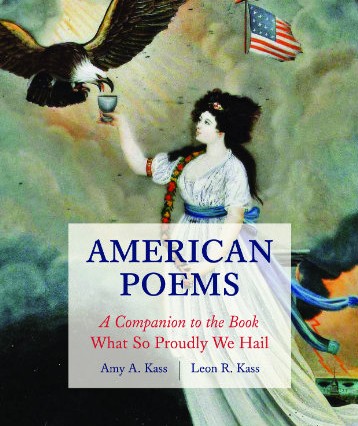Introduction
How can poetry contribute to our shared national memory and help shape our national identity? The American Muse: Poems for Free Men and Women examines classic American poems, both to understand their words and to explore how reading poetry can join individual and community in a unique and powerful way.
Emily Dickinson, “Tell All the Truth But Tell It Slant”
Walt Whitman, “I Hear America Singing”
Langston Hughes, “I, Too, Sing America”
Robert Frost, “Mending Wall”
Maya Angelou, “Caged Bird”
Billy Collins, “American Sonnet”
Stephen Vincent Benèt, “American Names”
Carl Sandburg, “Chicago”
Dana Gioia, “Becoming a Redwood”
William Carlos Williams, “The Red Wheelbarrow”
Elizabeth Bishop, “Sestina”
Wendell Berry, “The Man Born to Farming”
Katharine Lee Bates, “America, the Beautiful”
Ralph Waldo Emerson, “Concord Hymn”
Henry Wadsworth Longfellow, “Paul Revere’s Ride”
John Greenleaf Whittier, “The Vow of Washington”
Oliver Wendell Holmes Sr., “Old Ironsides”
Francis Scott Key, “The Star-Spangled Banner”
Julia Ward Howe, “The Battle Hymn of the Republic”
Edwin Arlington Robinson, “The Master”
Robert Hayden, “Frederick Douglass”
Emma Lazarus, “The New Colossus”



Post a Comment